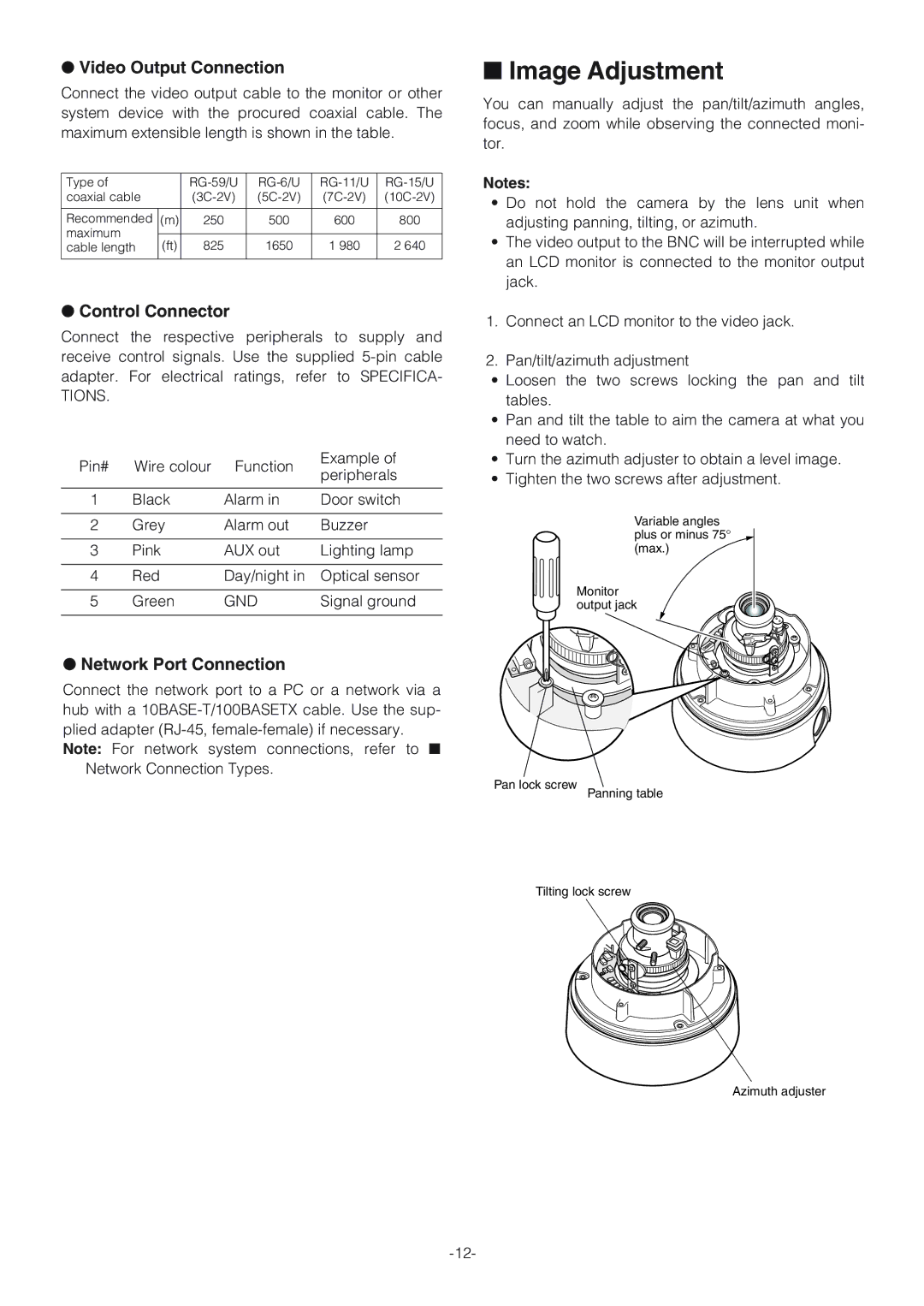
●Video Output Connection
Connect the video output cable to the monitor or other system device with the procured coaxial cable. The maximum extensible length is shown in the table.
Type of |
| |||||
coaxial cable |
| |||||
|
|
|
|
|
| |
Recommended | (m) | 250 | 500 | 600 | 800 | |
maximum |
|
|
|
|
| |
(ft) | 825 | 1650 | 1 980 | 2 640 | ||
cable length | ||||||
|
|
|
|
|
|
●Control Connector
Connect the respective peripherals to supply and receive control signals. Use the supplied
TIONS.
Pin# | Wire colour | Function | Example of | |
peripherals | ||||
|
|
| ||
|
|
|
| |
1 | Black | Alarm in | Door switch | |
|
|
|
| |
2 | Grey | Alarm out | Buzzer | |
|
|
|
| |
3 | Pink | AUX out | Lighting lamp | |
|
|
|
| |
4 | Red | Day/night in | Optical sensor | |
|
|
|
| |
5 | Green | GND | Signal ground | |
|
|
|
|
●Network Port Connection
Connect the network port to a PC or a network via a hub with a
Note: For network system connections, refer to ■ Network Connection Types.
■Image Adjustment
You can manually adjust the pan/tilt/azimuth angles, focus, and zoom while observing the connected moni- tor.
Notes:
•Do not hold the camera by the lens unit when adjusting panning, tilting, or azimuth.
•The video output to the BNC will be interrupted while an LCD monitor is connected to the monitor output jack.
1.Connect an LCD monitor to the video jack.
2.Pan/tilt/azimuth adjustment
•Loosen the two screws locking the pan and tilt tables.
•Pan and tilt the table to aim the camera at what you need to watch.
•Turn the azimuth adjuster to obtain a level image.
•Tighten the two screws after adjustment.
Variable angles plus or minus 75° (max.)
Monitor output jack
Pan lock screw Panning table
Tilting lock screw
Azimuth adjuster
